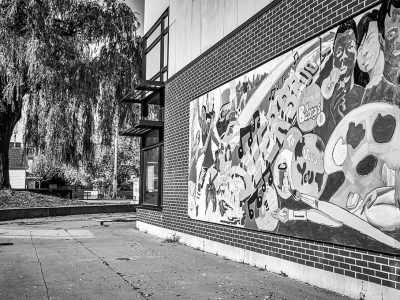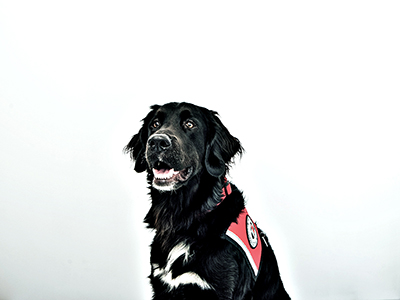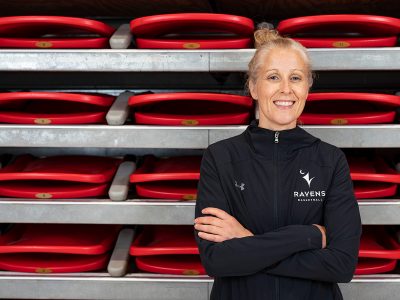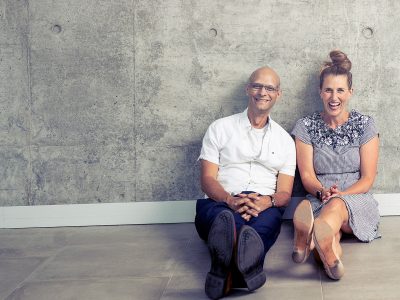*A Mi’kmaw concept that means two-eyed seeing
By Lisa Gregoire
Photos by Wayne Hoecherl
Before Rick Colbourne put a list of distinguished letters after his name from universities in Canada and abroad, and long before he joined Carleton’s Sprott School of Business as a professor last year, he taught himself guitar, formed a rock band called Hard Poetry and opened for acts like the Barenaked Ladies.
“I was always writing and playing music — that’s how I made sense of the world,” says Colbourne, an Anishinaabe from the Mattawa/North Bay Algonquin First Nation, who, around the time his band was touring, worked with low-income and homeless people for a non-profit charity on Vancouver’s Downtown Eastside.
“The songs I wrote,” he says, “reflected what I was experiencing and feeling out on the streets.”
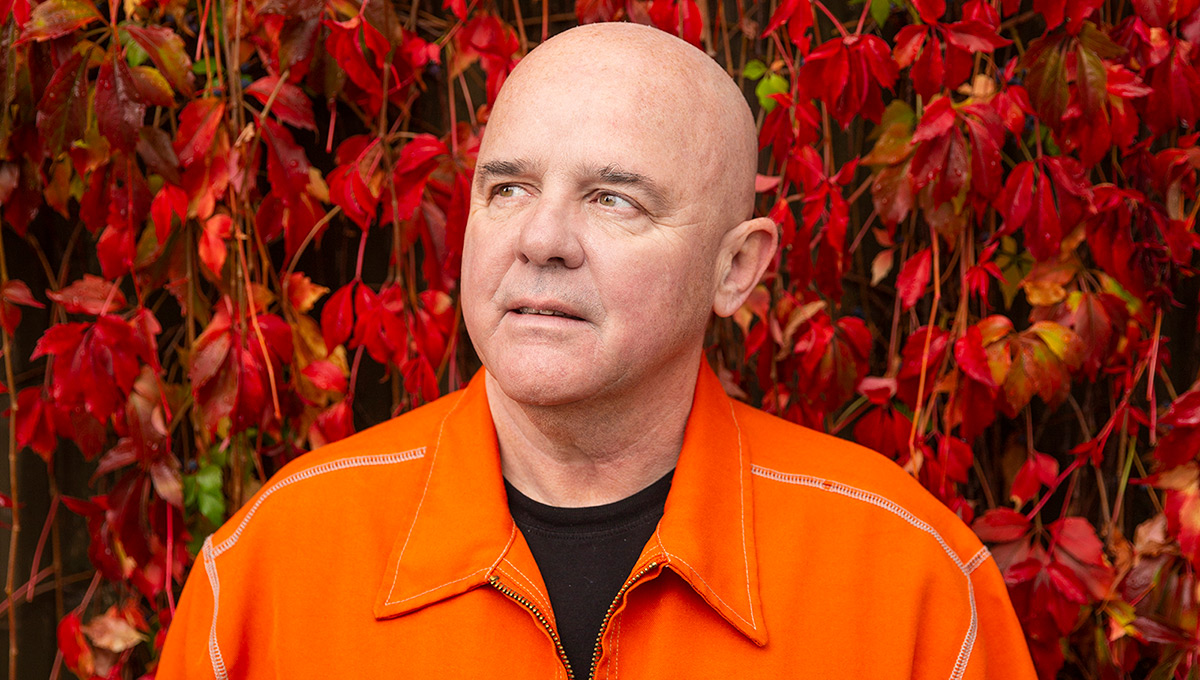
Prof. Rick Colbourne
Yet after releasing albums and playing gigs across the country, Colbourne changed directions. “There’s a certain point when you hit the ceiling in the Canadian music industry,” he says, “and it’s very difficult to move beyond that.”
Considering what followed, perhaps that ceiling was a blessing.
Colbourne went from performing to producing concerts to earning his MBA from Simon Fraser University, then worked on media and entertainment projects for the professional services multinational Accenture. While developing and pitching digital music solutions to record labels around the world, he realized that music executives underestimated the impact that the internet and digital platforms would have on their industry.
Colbourne transitioned to academia when he was hired by the University of Westminster’s School of Media, Art and Design in London to redesign its Music Business Management master’s program. These experiences informed his interest in the dynamics of power and learning in corporations, which led to a PhD in management at the University of Cambridge’s Judge Business School.
Bridging Different Worlds
Curious and nimble, Colbourne discovered at a young age the value of being able to bridge different worlds. He learned how to cope with uncertainty, make new friends, take risks and manage change from his Anishinaabe father, who worked in the Canadian Armed Forces medical corps and was posted — and brought the family — to bases across Canada and Europe.
Now, suitably armed with a string of life experiences, a network of multiskilled collaborators and notable academic credentials, Colbourne is settling into Sprott and focusing on managing a different type of change: reconciliation and decolonization.
What do these words mean? Well, it’s more than “just introducing a case study on selling bannock or crafts,” he says. “It involves recognizing that we are all colonized peoples, and that government, post-secondary institutions, businesses and corporations are complicit in colonizing Indigenous peoples in Canada.
“Decolonization demands that we develop partnerships with Indigenous communities and organizations that legitimize and draw on Indigenous worldviews and ways of being to bring about institutional movement from simple inclusion initiatives to more meaningful reconciliation strategies. And today, this has to include how we consider the impacts of the COVID-19 pandemic.”
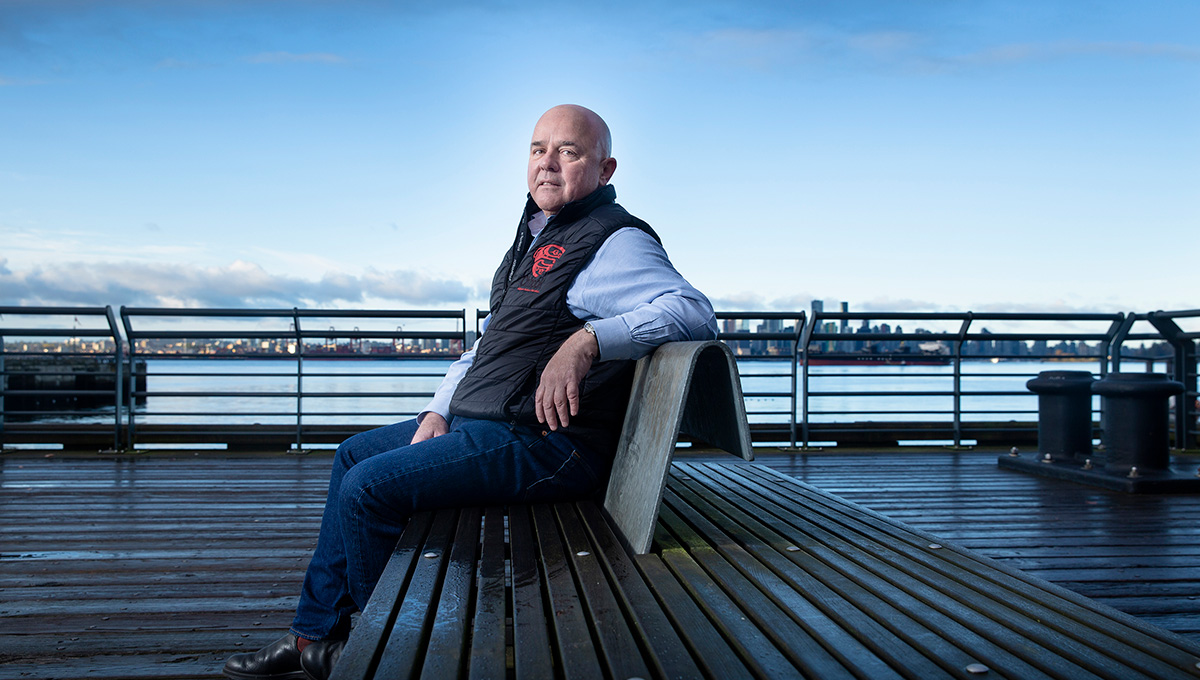
This past spring, in the midst of teaching courses, mentoring grad students and developing partnerships with Indigenous communities, Colbourne found himself, like so many others, struggling with the constraints of economic shutdowns and isolation. This led to intense discussions on the effects of the pandemic with colleagues at Indigenous Works, a national non-profit that plays an intermediary role to connect the private sector, Indigenous groups, government and post-secondary institutions.
Those conversations revolved not only around the impacts of COVID-19 on Indigenous workers, entrepreneurs, communities and economic development corporations but also around resiliency, coping and mitigation.
They came up with two projects. One is a series of video podcasts exploring how Indigenous people are coping with isolation and working from home. The second will paint a bigger picture, investigating what’s happening with Indigenous businesses. Community-owned development corporations are major employers in First Nation, Métis and Inuit communities and range from on-reserve gas stations, convenience stores, tourism guides and outfitters to large-scale natural resource operations.
Colbourne’s study, with funding from Carleton, will compile cross-Canada baseline data on these businesses and chart what has happened to them since March 2020.
This is valuable information because Indigenous economic development corporations contribute back to their communities by supporting initiatives that focus on enhancing health and resiliency among Elders, youth and other community members.
“Canadians often don’t understand that these development corporations have a strong role to play in Canada’s economy,” says Colbourne, who in September became Sprott’s inaugural Assistant Dean, Equity and Inclusive Communities. “We need to demonstrate this and clearly articulate these contributions, so non Indigenous Canadians can appreciate the value of collaborating with Indigenous economic development corporations.”
In the initial phase of this project, D’Arcy O’Farrell, a Sprott PhD candidate and research assistant who specializes in finance, will source, compile, aggregate and analyze annual reports, financial data and other information from First Nation, Métis and Inuit sources. Then a team of researchers will determine which businesses are struggling and which are staying afloat — and why — to inform more effective Indigenous, federal and provincial policy making.
This research is guided by the Indigenous principle of reciprocity and OCAP: ownership, control, access and possession. All of the findings will be shared with Indigenous communities and economic development corporations.
Podcasts Are Perfect For Indigenous Storytelling Traditions
The video podcast project is still preliminary and awaits provincial funding but those involved are already busy preparing. Kelly Lendsay, the President and CEO of Indigenous Works, says podcasts are perfect for Indigenous storytelling traditions and will be easily accessible on multiple online platforms. For those lacking a decent internet connection, he’s hoping libraries and other institutions will download them for public use. Short and sweet, they will offer tips and tools on how to survive and thrive in this stressful, unpredictable, work-from-home lifestyle.
“It’s a way to help employees adapt but you can also look at it from a performance lens: now that you are working in a blended or at-home environment, what can be done to ensure you maintain or even improve productivity?” says Lendsay.
“Podcasts provide a storytelling platform and share peoples’ experiences. Listeners trust those voices because they’re authentic.”
While it’s true that Indigenous peoples have embraced social media — “the talking stick on steroids,” Lendsay calls it — he’s hoping the podcasts will offer another layer of support, featuring stories from urban, rural and remote locations addressing challenges such as connectivity, technology fatigue, productivity, self-care and loneliness. Indigenous Canadians have faced devastating biological and social afflictions before and the coronavirus might be triggering bad memories, especially for Elders, which is another theme to explore.
To assist this work, Colbourne has solicited the podcasting skills of one of his students, Joel Flynn, who is doing a PhD in management at Sprott and shares many of his supervisor’s interests, including social justice and the intersection of culture, technology and music. Along with running a podcasting and recording studio in Vancouver, Flynn is a singer who, prior to COVID-19, hosted community-driven live music events involving local musicians and singers. With their common interests, student and professor appear to be kindred spirits.
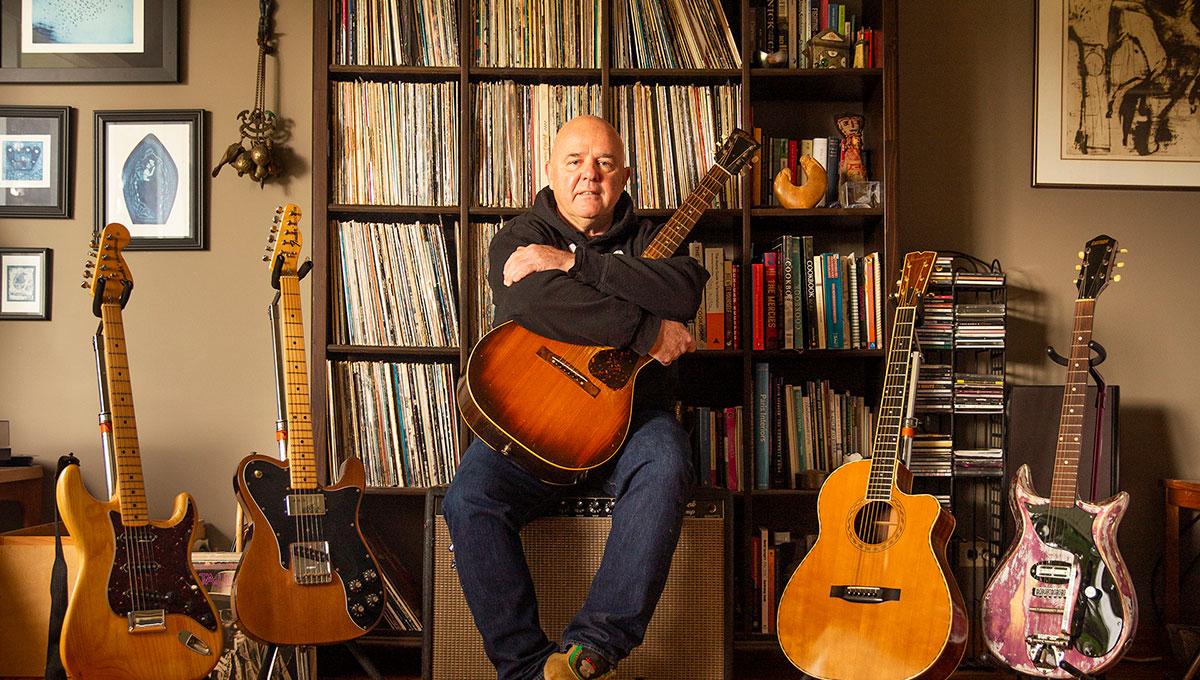
As if these pandemic projects aren’t enough, Colbourne has another ambitious goal: tackling the world’s “wicked problems” with etuaptmumk, a Mi’kmaw concept meaning “two-eyed seeing.”
With a Social Sciences and Humanities Research Council grant submission in the queue, this unique Indigenous-led research initiative has assembled a team of more than a dozen leading Indigenous and non-Indigenous thinkers from around the world who are committed to using two eyed seeing to frame understandings of and responses to the wicked problems of sustainable development, social justice and urban inequity.
“Indigenous peoples are keepers of holistic knowledge generated over thousands of years of adaptation to global forces,” says Colbourne, “through which they have the capacity to foster the transformations necessary to respond to grand challenges.” In other words, Indigenous peoples have a lot to offer in the wake of failed capitalist and neoliberal policies regarding the climate, our environment and the economy.
This project reflects Colbourne’s self-described role as an activist business prof. “I’m trying to reframe how we see things,” he says. “Instead of thinking about organizations and ventures created purely for profit — to exploit or extract from communities — how do we reframe this from an Indigenous perspective? How do we think about ventures from a values orientation?
“I provide a critical voice and, in the past, sometimes I’ve been the only critical voice,” continues Colbourne.
“But at Carleton and at Sprott I am excited to be working with faculty and staff who share the same values and perspectives and are wanting to change the world for the better. That’s why I’m here. I’m aligned with our dean, Dana Brown, and her vision for building a business school that values social impact and social innovation and is committed to engaging in reconciliation and Indigenization.”
It comes down to sharing wisdom and moving forward together, as equals, says Colbourne. Lendsay agrees and praises Carleton’s commitment to flipping the research model to promote community-led, needs-based projects instead of the outdated academic tradition of indulging esoteric notions, disembodied from the people and communities being studied.
Sprott is not just talking the talk. It was the first of dozens of post-secondary faculties to sign the Indigenous Works’ Luminary Charter, a proposed multi-year strategy to advance Indigenous innovation and research collaboration through partnerships with businesses, universities, research agencies, Indigenous businesses and communities. The charter is essentially a commitment from powerful mainstream players to support and amplify Indigenous-led research and innovation projects with expertise and money driving economic transformation and jobs.
“We’re looking for more long-term relationships and long-term benefits coming out of research that engages Indigenous communities and resonates with their needs, values and perspectives,” says Colbourne. “Indigenous-led research has to contribute to community socio-economic health and well-being by facilitating self-governance and self-determination. It cannot be extractive. It has to be collaborative.”
Lendsay likens this to organizing a sports league: all you have to do is show up and play. “These partnerships are going to be powerful because everyone is so stressed and busy,” he says. “People want to do this, they just don’t have the time to be part of building networks. So that’s what we’re doing — building an infrastructure and ecosystem to support these collaborations.”
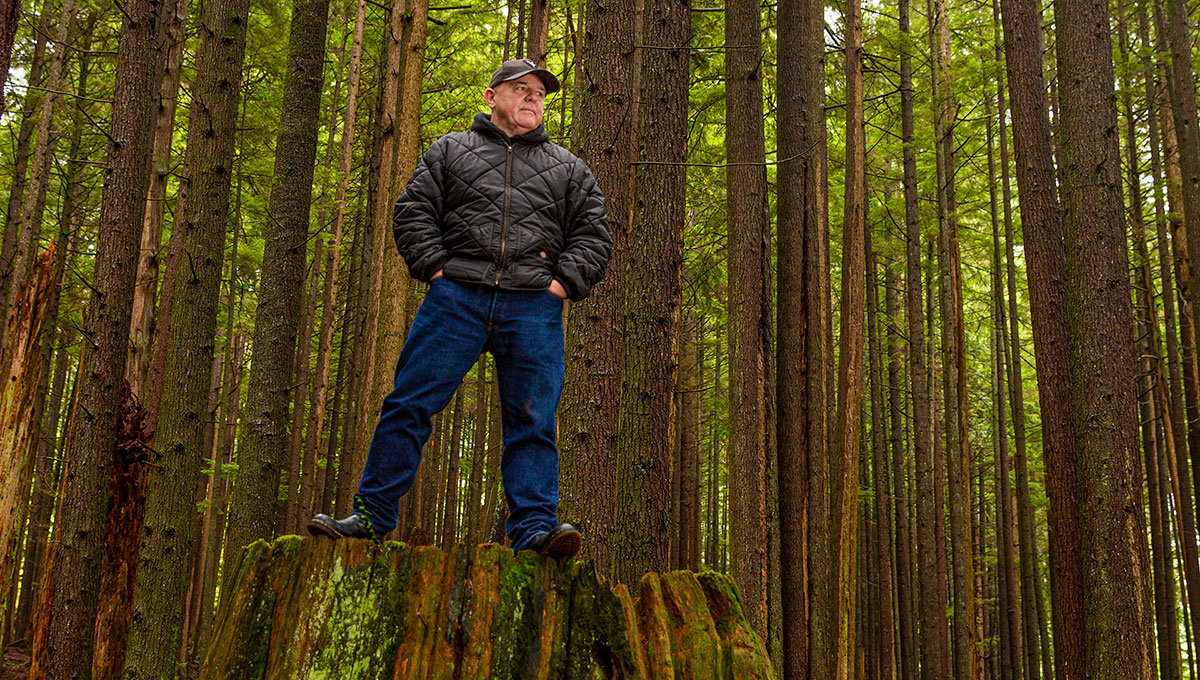
Igloolik Project Shows Potential of Carleton’s Approach
One need only consider what’s happening in Igloolik, Nunavut, more than 2,500 kilometres north of Carleton, to see just how powerful this approach can be.
Igloolik residents want to use excess construction materials currently languishing at the dump to build a meat and fish processing plant and possibly a hydroponic greenhouse to grow vegetables. But they have neither the money nor the research expertise to design such things, says the town’s mayor, Merlyn Recinos. So Colbourne is teaming up with Carleton colleagues in Industrial Design, Information Technology and Neuroscience to bring their knowledge to the North.
Upcoming community consultations with Elders, youth and others in Igloolik will determine project priorities and design elements and then Carleton graduate and undergrad students will work on shaping community objectives into reality. And, in the process, they’ll have an opportunity to learn about Arctic environments and Inuit innovation.
“It’s very refreshing for us, at the community level, to hear this,” says Recinos.
“If you really want to create change, what you need to do is come to us as an empty vessel with the skills that you have and listen to the community to find out what we want. Communities truly want to create their own change and they want to be part of it. For this to happen, co-creation and collaboration needs to be at the forefront.”
Recinos uses the word “refreshing” because this is not something he expected. “It’s surprising to think of a business school caring about culture, community and the environment,” he says. “But that’s what reconciliation is all about: not just trying to understand the other side but working with the other side to ensure that, at the end of the day, we’re all benefitting.”
Monday, November 23, 2020 in Features - Fall 2020
Share: Twitter, Facebook
